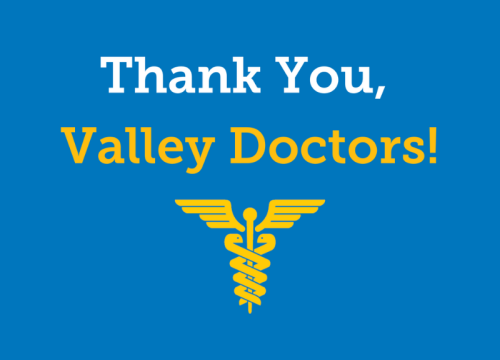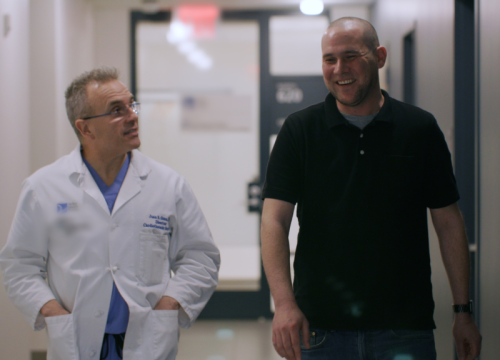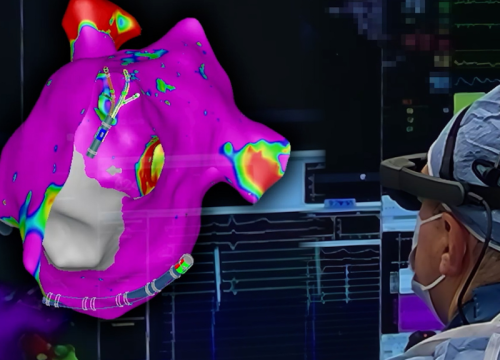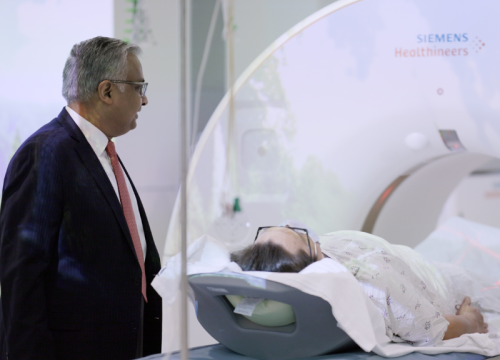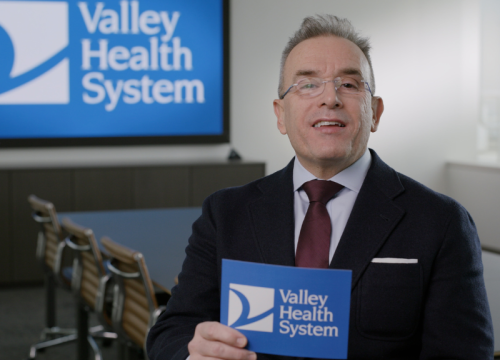Read important information about Valley's continued commitment to serving our patients and respecting their privacy, regardless of immigration status.
Read MoreIf you have an abnormal blood test result, such as low blood count, your doctor my recommend an evaluation by a hematologist, a doctor who specializes in blood disorders. Valley’s Center for Blood Disorders consists of a team of hematologists and advanced practice providers who are dedicated to helping patients in these types of situations. Our team understands that an evaluation for a potential blood disorder can be unnerving, and we’re here to help—we make sure you fell listened to, cared for, and confident at every step.
We specialize in diagnosing and treating blood disorders. We’ll look deeper into your test results and determine what is behind the findings. We’ll work with you to determine the cause and provide the treatment you need, if or when you need it.
Your Benign Blood Disorders Team
Hematologists
Jae Cho, MD
Michele Frank, MD
Eli Kirshner, MD
Jason Suh, MD
Kevin Wood, MD
Advanced Practice Providers
Elisa DePierro, APN
Alysha Sewall, NP
Rachel Tobin, APN
Symptoms of Blood Disorders
Symptoms of blood disorders are often vague and similar to symptoms of other conditions. Some signs may include:
- Fatigue and weakness
- Shortness of breath
- Frequent nosebleeds
- Unexplained bruising or bleeding
- Blood clots
- Swelling of the legs
- Chest tightness
Often, people with blood disorders don’t even have symptoms. Instead, the first indication something is wrong is an unexpected abnormal blood test result. In this case, your primary care provider may refer you to one of our Blood Center team members for further evaluation.
Comprehensive Care for Benign Blood Disorders
A benign blood disorder can affect your health in ways you may not realize. That’s why, when needed, our hematologists will coordinate your care with the right team of specialists.
For example, benign blood disorders can raise your risk for complications if you’re pregnant. Your hematologist will plan your care with your OB/GYN before, during and after your pregnancy.
Our team will work with all the providers you may need, right here at Valley. These specialists may include:
- Primary care providers
- Gastroenterologists
- Maternal-fetal medicine specialists
- Obstetricians and gynecologists
- Pulmonologists
- Vascular Surgeons
- Genetic counselors
- Nutritionists
Our patient navigator will help you schedule all your appointments, allowing you to focus on your treatment and feeling better.
The Valley Approach to Benign Blood Disorders Care
At Valley, we believe that the best care comes from two things — understanding every individual patient and arriving at an accurate diagnosis. At your first appointment, we’ll ask you questions about yourself, your concerns, and your goals. We’ll review your medical history, and we may also order additional tests to determine the cause of your abnormal results or symptoms.
We’ll answer your questions and discuss your treatment options based on your:
- Symptoms and how they affect the quality of your life
- Overall health
- Personal preferences and goals
Personalized Treatment for Benign Blood Disorders
Not all benign blood disorders are treated the same way. There are more treatment options available for these conditions today than ever before.
Valley’s Center for Blood Disorders offers the most advanced treatment options available. We’ll customize your care plan to address your specific condition and fit your lifestyle. Your care plan may include:
- Iron therapy
- Blood transfusions
- Vitamin therapy
- Anticoagulation therapy
- Clotting factor replacement therapy
- Nutrition counseling
Conditions Treated
- Anemias
- B12 and folic acid deficiency anemia
- Hemolytic anemia
- Iron-deficiency anemia
- Sickle cell
- Thalassemia
- B12 and folic acid deficiency anemia
- Bleeding disorders
- Factor deficiencies
- Hemophilia A and B
- Immune thrombocytopenic purpura (ITP)
- Platelet disorders
- Von Willebrand disease
- Factor deficiencies
- Clotting disorders
- Antiphospholipid syndrome (APLS, APS, or Hughes syndrome)
- Deep vein thrombosis (DVT) and pulmonary embolism (PE)
- Hereditary clotting disorders, such as Factor V Leiden and Prothrombin gene mutations
- Paroxysmal nocturnal hemoglobinuria (PNH)
- Thrombophilia
- Antiphospholipid syndrome (APLS, APS, or Hughes syndrome)
- Platelet disorders
- Thrombocytopenia (low platelet count)
- Thrombocytosis (high platelet count)
- Thrombocytopenia (low platelet count)
- Pregnancy-related blood disorders
- Benign gestational thrombocytopenia
- Gestational anemia
- Hereditary clotting disorders potentially leading to fetal loss
- Benign gestational thrombocytopenia
- White blood cell disorders
- Leukocytosis (high white blood count)
- Leukopenia (low white blood count)
- Leukocytosis (high white blood count)
Why Choose Valley for Benign Blood Disorders Care?
- Accurate diagnosis: Finding out what’s causing your symptoms can be half the battle when it comes to benign blood disorders. At the Center for Blood Disorders, we can help you find answers that you haven’t found elsewhere. We aim to get you an accurate diagnosis, so you can begin treatment and start managing your condition.
- Helping you feel better: Our team makes your quality of life a top priority. We know that some symptoms of benign blood disorders, especially fatigue and weakness, can be debilitating. We’ll work with you on a treatment plan to get your symptoms under control, allowing you to live a full life again. And we’ll continue to adjust your care to ensure you continue enjoying a better quality of life.
- Benign blood disorders clinical trials: Our team participates in clinical trials and research on promising new treatments for anemia, bleeding and clotting disorders, and other conditions. This means the Center for Blood Disorders may offer you access to advanced therapies that aren’t yet widely available.
- Genetic testing and counseling: Some benign blood disorders are inherited. We offer genetic counseling and genetic testing so you can understand your risks and protect your health.
- Focused attention: Our hematology team offers the medical expertise you need — and the guidance and support you deserve. When you turn to us, you will be treated with warmth and respect. We take the time to listen to your concerns and make sure you understand your diagnosis and treatment options.


